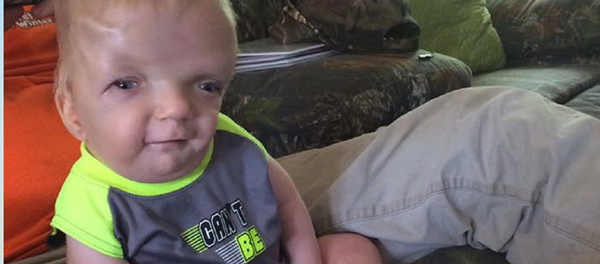New research by neuroscientists from Duke University studied more than a thousand people in New Zealand, examining their lives from their birth in the early 1970s until they reached the age of 38. They found that those who scored in the lowest 20 percent for 'Brain Health' aged three went on to commit more than 80 percent of crimes as adults.
The 'Brain Health' index was created by the researchers based on a 45 minute examination with the three year-olds who took part in the study. The researchers looked at the neurological features of the kids, such as cognitive, motor and language skills, along with other factors such as frustration tolerance, restlessness and how impulsive they were. From this, the scientists scored each child according to how healthy their brain was considered to be.
One of the authors of the research, neuroscience professor at Duke University Terrie Moffitt, told Radio Sputnik more about the study.
The research was not only about predicting crime, explained the scientist. The study also looked at how frequently the subjects used public services such as welfare benefits, pharmaceutical prescriptions, hospitals, insurance claims for injuries and disability in addition to appearances for criminal convictions. Through analyzing the data, they found out 80% of public services were used by just 20% of the population.
The researchers discovered that these people were at risk of being maltreated as children; they tended to grow up in poor homes, and had poor self-control, according to their teachers in primary school.
Moffitt added that in order to control for financial resources, the scientists removed all the data from the families who lived below the poverty line and recalculated the analysis, but the findings still applied to middle-class children.
The researchers found that social environment was an important factor, and people growing up in less than ideal situations tend to pass their own behavior patterns on to their children. With this in mind, the team plan to look at the parenting skills of the next generation.
The scientists, however, stress that their results do not imply that every individual in the 20 percent group carried out a crime later in the future. On the contrary, the findings simply provide evidence that 'Brain Health' has as significant impact on an individual's disposition to committing crimes as other socio-economic circumstances.
Moffitt said she did not expect toddles to be screened for potential signs of criminality and taken for any special treatment in the future. “It’s pretty easy to spot a child with poor brain health in the first grade. The teachers know who these children are – they are the children who don’t read well after a year of education,” she explained.
The neuroscientist stressed that the aim of the study was not about stigmatizing this group.
“I hope that what the research will do is stimulate people to be more compassionate towards this part of the society who is being left behind,” Moffitt said.
Moffitt spoke about the Ministry for Vulnerable Children which has recently been set up in New Zealand where the research was carried out. According to her, the UK government is considering having universal kindergarten up to age three. “It could be an intervention program that works sort of like social security works for the older members of American society,” Moffitt presumed.
“They don’t want to leave early childhood development just to an accident any more. If it is a really good thing, everyone wants it, not just the disadvantaged people,” she added.
The scientist hopes that the situation might change for the better in the future, as the word has changed greatly since the 1970s. “For example we do not have lead in the gasoline in our cars anymore. That is one factor that may affect the brain health of children,” she said.
Never miss a story again — sign up to our Telegram channel and we'll keep you up to speed!








